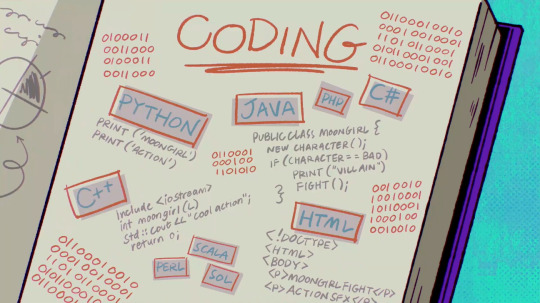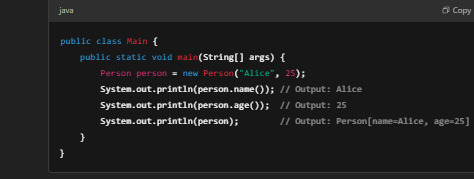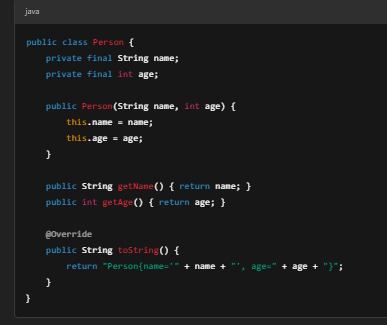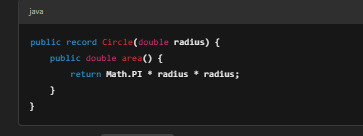#java oops
Explore tagged Tumblr posts
Text

our new friend, Chrysanthemum 「菊花」
[bsky]
#got the new java sparrow!#ffxiv gpose#gposers#ffxiv screenshots#ffxiv oc#iron poses#elezen#duskwight#yein my beloved#birds#been sitting on this one oops#a white chrysanthemum signifies death/is given at funerals#so it's kinda poetic and charming i think
94 notes
·
View notes
Text
think about what makes bugs "less worthy" to be in our spaces as a programmer . try catching and releasing the bug humanely in a google doc outside the function file
#idiots#is this another well established programming joke#vivid mental image of trapping a computer bug in a glass and taking it outside#lure it gingerly onto this piece of paper#animal rights#(accidentally catapults the bug somewhere in your code) oops#matlab#programming#python#C#java#idk what the rest of them are#scratch#animal cruelty#bugs#spiders#insects
13 notes
·
View notes
Text
jeeez. no wonder baby Aspect bounced off of this so hard. it isn't *super* complicated? but its a lot of things i barely understand *now* all in one place, let alone 5 or 7 years ago. i think i can figure it out, but man. no wonder i hated this lmao
#.txt#coding liveblog#we learned about OOP in high school And college so like. we knew what classes are in Theory#but we didn't do a lot of coding. so stuff like getters and setters aren't Complicated?#but until we took another crack at java a few months ago. they were New and Scary#(they're still Pretty new and Pretty scary but at least I'm Aware of them now)#honestly it's ridiculous to say considering our. Literal Degree. but we only Really got our head around parameters like. earlier this year?#we understood them in theory!!!!! i promise we did#but theory and practice are WHOLLY separate concepts to us. so knowing what they are#versus how to Use them? completely different beasts.#shout out to the interactive javascript tutorial that made me figure it out#no one tell my college lecturers any of this btw they'd be mortified#or my uni lecturers for that matter#sorry guys but y'all sucked ass at teaching Me In Particular
2 notes
·
View notes
Text
hand to forehead. bracing inhale. LOS endearing as always

look at their little Two Eyes expressive display format

look at their little ‼️😰 expressive display format

everybody outta the way look at their HEART 💙 !!! well i 💙 them sm so amped

p.s. fun to put joke coding but showing different languages' formats
#💙 them sm. so amped about LOS so true bestie#''cool action'';#wish i knew more (abt) coding fr. spent a few weeks in a java class. do enjoy languages; processes; getting creative ft. tools/parameters#LOS-307#great as usual that their display screen is made so Vivacious whilest they are otherwise. a prism. person standing emoji#and that sometimes their expressiveness is in Symbols sometimes its more so in Movement perhaps along w/their voice#think the Their Default / Main Circle separating into [kind of like two eyes] only otherwise happens when Oops Dying. Like A Human Being...#what a gift they are. kicking my legs. such a delight & we can't have it all (like if they sang a line lol) but we have a lot#was going now where are they in Recurring Roles on this wikipedia page b/c that's Rarer vs. one time guest VA but they're thusly; bless....#answer is who put them under villains. technically but c'mon. & who says they can't be in multiple categories#everywhere i look the data is noncomprehensive / not granular enough lol. c c c c'mon#alright wait fine i'll check if the binary means anything for the title card with coding jokes....#[person w/slow laptop & an unresponsive [numeral one] key usually incl now voice] okay going the No (Discernible To Me) Meaning route
4 notes
·
View notes
Text
Understanding Object-Oriented Programming and OOPs Concepts in Java
Object-oriented programming (OOP) is a paradigm that has revolutionized software development by organizing code around the concept of objects. Java, a widely used programming language, embraces the principles of OOP to provide a robust and flexible platform for developing scalable and maintainable applications. In this article, we will delve into the fundamental concepts of Object-Oriented Programming and explore how they are implemented in Java.

Object-Oriented Programming:
At its core, Object-Oriented Programming is centered on the idea of encapsulating data and behavior into objects. An object is a self-contained unit that represents a real-world entity, combining data and the operations that can be performed on that data. This approach enhances code modularity, and reusability, and makes it easier to understand and maintain.
Four Pillars of Object-Oriented Programming:
Encapsulation: Encapsulation involves bundling data (attributes) and methods (functions) that operate on the data within a single unit, i.e., an object. This encapsulation shields the internal implementation details from the outside world, promoting information hiding and reducing complexity.
Abstraction: Abstraction is the process of simplifying complex systems by modeling classes based on essential properties. In Java, abstraction is achieved through abstract classes and interfaces. Abstract classes define common characteristics for a group of related classes, while interfaces declare a set of methods that must be implemented by the classes that implement the interface.
Inheritance: Inheritance is a mechanism that allows a new class (subclass or derived class) to inherit properties and behaviors of an existing class (superclass or base class). This promotes code reuse and establishes a hierarchy, facilitating the creation of specialized classes while maintaining a common base.
Polymorphism: Polymorphism allows objects of different types to be treated as objects of a common type. This is achieved through method overloading and method overriding. Method overloading involves defining multiple methods with the same name but different parameters within a class, while method overriding allows a subclass to provide a specific implementation of a method that is already defined in its superclass.
Java Implementation of OOP Concepts:
Classes and Objects: In Java, a class is a blueprint for creating objects. It defines the attributes and methods that the objects of the class will have. Objects are instances of classes, and each object has its own set of attributes and methods. Classes in Java encapsulate data and behavior, fostering the principles of encapsulation and abstraction.
Abstraction in Java: Abstraction in Java is achieved through abstract classes and interfaces. Abstract classes can have abstract methods (methods without a body) that must be implemented by their subclasses. Interfaces declare a set of methods that must be implemented by any class that implements the interface, promoting a higher level of abstraction.
Inheritance in Java: Java supports single and multiple inheritances through classes and interfaces. Subclasses in Java can inherit attributes and methods from a superclass using the extends keyword for classes and the implements keyword for interfaces. Inheritance enhances code reuse and allows the creation of specialized classes while maintaining a common base.
Polymorphism in Java: Polymorphism in Java is manifested through method overloading and overriding. Method overloading allows a class to define multiple methods with the same name but different parameters. Method overriding occurs when a subclass provides a specific implementation for a method that is already defined in its superclass. This enables the use of a common interface for different types of objects.
Final Thoughts:
Object-oriented programming and its concepts form the foundation of modern software development. Java, with its robust support for OOP, empowers developers to create scalable, modular, and maintainable applications. Understanding the principles of encapsulation, abstraction, inheritance, and polymorphism is crucial for harnessing the full potential of OOPs concepts in Java. As you continue your journey in software development, a solid grasp of these concepts will be invaluable in designing efficient and effective solutions.
#javascript#javaprogramming#java online training#oops concepts in java#object oriented programming#education#technology#study blog#software#it#object oriented ontology#java course
3 notes
·
View notes
Note
Make sure to keep an eye out for lizards, swan divers and dart worms!
Swan divers are best seen by their large shadows, which are visible for a few seconds before they land, and dart worms are nuisances.
Don't forget that you were planning on taming a pixie lizard!

TA: Don't worry, I haven't forgotten. Thank you for the concern though!
...
Trying to find a pixie lizard that won't attack me immediately is the problem though.
#this was late bc I was struggling with java coding. oops ^^'#heheeheh lizor tming#rain world#rain world oc#rain world askblog#the amalgamation#rw oc#rw slugcat oc#rw slugcat
2 notes
·
View notes
Text
Very amused every time someone discovers the ultimate way to do OOP in its truest, most polymorphic, most object-oriented form and its just immutable classes with public instance variables and no methods and no inheritance being transformed through singleton classes with no instance variables and one side-effect-free method, potentially taking a function as a parameter or returning another single method class. Brother you just reinvented functional programming.
#codeblr#progblr#object oriented programming#OOP#functional programming#Algebraic data types. Pure functions. Higher order functions. Closures. The gangs all here#And then whenever you tell them that what they did. they say its like functional programming but different because its polymorphic#Literally had a conniption when robert martin said he discovered clojure was actually an oop language because#it was better at polymorphism than java#This is without knowing the subtype polymorphic features in clojure
4 notes
·
View notes
Text
Talking to vsco girl robot: What language are you written in?
Vsco girl robot: Java. and I OOP!
2 notes
·
View notes
Text
Lets talk OOP concepts 🌼
Encapsulation
The purpose of encapsulation is to protect data. The method fields are being hidden (i.e the fields are declared as private) and data is populated in the fields using getter and setter methods.
Inheritance
Inheritance uses the concept of parent class(superclass) and child class(subclass). The subclass inherits all the properties and methods from the superclass and may have even more properties and methods than the superclass. It follows a is-a relationship (eg. Car is a Vehicle).
Polymorphism
Polymorphism allows different classes (subclasses) to use the same method (fromt the superclass) differently. Two different methods are being employed in polymorphism - method overriding and method overloading.
Method overriding is done when the instance uses the same method as the superclass, but implements the method in its own way. (eg. superclass Animal may have a method which returns "Makes a sound". The subclass, Dog will use the method and will override it by returning "Woof").
Method overloading is done when different instances can be created using the same method with different parameter list.
Polymorphism follows a is-a relationship as well.
Abstraction
Abstraction is the process of hiding implementation details of the method. Abstraction is used by abstract classes (partially abstract) and interfaces (fully abstract).
0 notes
Text
Still Learning Java? Smart Move

In a world where new programming languages pop up every few months, and job market demands shift faster than ever, you might wonder — “Is Java still worth learning?”
If you’re still learning Java, you’re not behind the times — you’re actually setting yourself up for long-term success. Java has evolved alongside the tech industry for nearly three decades, and today, it remains one of the most powerful, stable, and job-friendly programming languages out there.
Whether you’re a college student starting your journey, a recent graduate preparing for the job market, or a career switcher exploring software development — staying committed to learning Java is a smart move. And if you're doing it with guidance from Xplore IT Corp, Coimbatore’s most trusted tech training hub, you're on the best path forward.
Java: A Language That Outlasts Trends
Let’s be honest — some programming languages skyrocket in popularity and then vanish just as fast. Java isn’t one of them.
Born in the mid-1990s, Java has consistently been used to build enterprise-level software, mobile apps, banking systems, IoT devices, and even cloud-native applications. It powers everything from Netflix’s recommendation engine to ATM banking software and Android mobile apps.
Some of the biggest names in tech — Amazon, TCS, Infosys, Oracle, Google run core operations using Java. Why? Because it’s:
Secure
Platform-independent
Scalable
Reliable in production environments
While new languages come and go, Java has only grown stronger.Still learning Java? Smart move. You’re investing in something that’s here to stay.
Career-Ready Skills That Employers Value
You don’t just want to “learn a language” — you want to build a career. That’s where Java excels.
Thanks to the Java Virtual Machine (JVM), you can write code once and run it almost anywhere — from Windows to Mac to Linux. This cross-platform capability makes Java ideal for web development, mobile development, and cloud integration.
Companies hire Java developers because they know the language is:
Easy to maintain
Scalable across projects
Well-supported by a global community
Backed by powerful frameworks like Spring and Hibernate
By learning Java at Xplore IT Corp through our structured Java Training Programs in Coimbatore, you’re not just memorizing syntax — you’re learning how to think like a professional developer.
Why Xplore IT Corp is the Best Place to Learn Java
Yes, you can try to learn Java on YouTube or Udemy. But let’s be real — real skills come from guided, hands-on training, with mentorship and real-world projects.
At Xplore IT Corp, we’ve designed our Java course structure specifically for students who want to:
Understand programming logic from the ground up
Build practical applications that go beyond theory
Get internship experience and placement opportunities
Earn certifications that companies trust
Here’s what makes our training unique:
Industry-aligned curriculum
Projects simulating real workplace scenarios
One-on-one mentor support
Interview prep sessions & mock tests
Lifetime access to course content
Internship opportunities with certification
Go Full Stack — Get the Complete Skillset
Learning Java alone is great. But pairing it with front-end development skills? That makes you unstoppable.
At Xplore IT Corp, our Java Full Stack Developer Course in Coimbatore helps you master:
Frontend: HTML5, CSS3, JavaScript, Bootstrap, React/Angular
Backend: Core Java, Advanced Java, Spring Boot, Hibernate
Database: MySQL, MongoDB
Tools & Deployment: Git, GitHub, Jenkins, AWS, Docker
You won’t just be coding in isolation — you’ll be building fully functional apps, from the user interface to the backend logic and the database layer.
Still learning Java? Smart move. Learning Java full stack development? That’s how you stand out in interviews.
Especially Ideal for Students & Freshers
We get it — as a student, you’ve got tons of options. But if you’re serious about getting placed after graduation, Java is your secret weapon.
It’s used in:
University programming assignments
Campus interviews and technical tests
Government tech exams like GATE
Competitive programming and hackathons
Plus, Java helps you build a solid base in object-oriented programming, which makes learning other languages like Python, C#, or Kotlin so much easier.
At Xplore IT Corp, we make sure our Java coaching:
Starts from basics and scales up to projects
Includes real-world case
Prepares you for aptitude and technical
Gives you internship experience with certification
So yes — if you’re still learning Java in college, you’re making a smart and future-focused move.
High Demand = High Opportunity
Did you know that Java developers are among the most hired tech professionals in India?
Recruiters are actively looking for:
Software engineers with core Java
Full stack developers familiar with Java
Android app developers with Java backend
Cloud engineers with Java + Spring Boot capabilities
Industries hiring Java developers include:
Banking & finance
Healthcare
E-commerce
Logistics & supply chain
Telecom & cloud infrastructure
And it’s not just about getting any job — it’s about landing well-paying, secure roles in companies that value your expertise.
Still learning Java? Smart move. You’re learning a language that’s not just popular, but profitable.
Course Tracks Available at Xplore IT Corp
We’ve got something for everyone — from beginners to advanced learners:
Java Programming Foundation
Perfect for absolute beginners. Covers basic syntax, OOPs concepts, and logic building.
Advanced Java with Projects
Takes you deeper into JDBC, JSP, Servlets, Spring Framework, and web services.
Java Full Stack Developer Training
A full roadmap to becoming a professional developer — front-end to back-end, plus database and cloud deployment.
Every course includes:
Internship support
Certification
Career counseling
Resume and interview prep
Placement assistance
Why Students Trust Xplore IT Corp
We’re not just another coaching center—we’re a career transformation partner. Located in the heart of Coimbatore, Xplore IT Corp has helped thousands of students launch successful careers in IT.
What sets us apart:
State-of-the-art lab infrastructure
1:1 mentoring and doubt-clearing sessions
Expert trainers from leading tech firms
Flexible class timings for students and working professionals
100% placement assistance
No wonder we’re rated as one of the top software training institutes in Coimbatore.
Your Smart Move Starts Here
Java is the language of opportunity. If you're still learning it, you're doing something right don’t stop now.
With Xplore IT Corp’s structured Java training programs, you’ll gain not just the technical know-how, but also the confidence to build apps, ace interviews, and land high-growth tech jobs.
So, if you're still learning Java — smart move. Still thinking about enrolling? Smarter move is to act now.
Enroll Today and Build Your Future in Tech
📧 Email: [email protected] 📞 Phone: +91 90470 20807 | +91 90470 10807 🌐 Website: www.xploreitcorp.com
#Java programming#Java language#Core Java#Advanced Java#Java developer#Java training#Java course#Java certification#Java tutorials#Java for beginners#Java classes#Java OOP#Java syntax#Java compiler#Java IDE#Java JDK#Java JVM#Java API#Java libraries#Java frameworks#Java Spring#Java Hibernate#Java JDBC#Java Servlets#Java JSP#Java we
0 notes
Text
✈️ Airline Reservation System Project in Java – Build Your Own Booking System!
Looking for a practical and impressive Java project? The Airline Reservation System Project in Java is perfect for final year students and beginners looking to create a real-world application.
This project lets users book, cancel, and manage flight tickets through a Java-based interface. It’s a great way to learn core programming concepts like OOP, file handling, and GUI with Java Swing.
🎓 Ideal for academic submissions or personal skill-building!
👉 Download now: 🔗 Airline Reservation System Project in Java
Explore more ready-made student projects: 🌐 Projects for Everyone
#Java#JavaProject#AirlineReservationSystem#FinalYearProject#StudentProjects#CSProjects#MiniProject#JavaSwing#Programming#ProjectsForEveryone#CodeNewbie#EngineeringProject#LearnJava#CodingProjects#JavaGUI#OOP
0 notes
Text
hackathons the absolute worst it is like my own personal hell
#like need to team up my guy#oops is such a weirdass subject#not to forget how we also have to learn java at the same time#cse is sooo ugly bye#and now i also have to write a 1500 word report on java vs cpp#and apparently my prof uses an ai detector for plagiarism which is#honestly very cool of her morally#so have to do from scratch rip#tw rant#lou uwu lou
1 note
·
View note
Text
Exploring Record Classes in Java: The Future of Immutable Data Structures
A record in Java is a special type of class designed specifically for holding immutable data. Introduced in Java 14 as a preview feature and made stable in Java 16, records eliminate the need for writing repetitive boilerplate code while still providing all the essential functionalities of a data model.
Key Characteristics of Java Records
Immutable by Default – Once created, the fields of a record cannot be modified.
Automatic Methods – Java automatically generates equals(), hashCode(), and toString() methods.
Compact Syntax – No need for explicit constructors and getters.
Final Fields – Fields inside a record are implicitly final, meaning they cannot be reassigned.
How to Define a Record Class in Java
Defining a record class is straightforward. You simply declare it using the record keyword instead of class.
Example: Creating a Simple Record
java

Using the Record Class
java

Notice how we access fields using methods like name() and age() instead of traditional getter methods (getName() and getAge()).
Comparing Records vs. Traditional Java Classes
Before records, we had to manually write constructors, getters, setters, and toString() methods for simple data structures.
Traditional Java Class (Without Records)
java

This approach requires extra lines of code and can become even more verbose when dealing with multiple fields.
With records, all of this is reduced to just one line:
java

When to Use Records?
Records are ideal for: ✔ DTOs (Data Transfer Objects) ✔ Immutable Data Representations ✔ Returning Multiple Values from a Method ✔ Reducing Boilerplate Code in Simple Models
Customizing Records: Adding Methods and Static Fields
Though records are immutable, you can still add methods and static fields for additional functionality.
Example: Adding a Custom Method
java

Now you can call circle.area() to calculate the area of a circle.
Using Static Fields in Records
java

Limitations of Java Record Classes
While records are powerful, they do have some limitations: ❌ Cannot Extend Other Classes – Records implicitly extend java.lang.Record, so they cannot inherit from any other class. ❌ Immutable Fields – Fields are final, meaning you cannot modify them after initialization. ❌ Not Suitable for Complex Objects – If your object has behavior (methods that modify state), a traditional class is better.
Conclusion: Are Java Record Classes the Future?
Record classes offer a modern, efficient, and elegant way to work with immutable data structures in Java. By removing repetitive boilerplate code, they improve code readability and maintainability.
If you’re working with data-heavy applications, DTOs, or immutable objects, adopting records is a great way to simplify your Java code while ensuring efficiency.
What’s your experience with Java records? Share your thoughts in the comments! 🚀
FAQs
1. Can I modify fields in a Java record?
No, records are immutable, meaning all fields are final and cannot be changed after object creation.
2. Are Java records faster than regular classes?
Performance-wise, records are similar to normal classes but offer better readability and maintainability due to their compact syntax.
3. Can a record extend another class?
No, records cannot extend any other class as they already extend java.lang.Record. However, they can implement interfaces.
4. How are records different from Lombok’s @Data annotation?
While Lombok’s @Data generates similar boilerplate-free code, it requires an external library. Java records, on the other hand, are built into the language.
5. What Java version supports records?
Records were introduced as a preview feature in Java 14 and became a stable feature in Java 16. For more Info : DevOps with Multi Cloud Training in KPHB
#Java#CoreJava#JavaProgramming#JavaDeveloper#LearnJava#Coding#Programming#Tech#SoftwareDevelopment#ImmutableObjects#JavaRecords#OOP#CleanCode#CodeNewbie#DevLife#BackendDevelopment#Java21#TechBlog#CodeWithMe#100DaysOfCode#CodeSnippet#ProgrammingTips#TechTrends
0 notes
Text
Video calls are funny cause YouTube has taught me that pointer.DoubleTap(); skips video
0 notes
Photo

(via Top 10 Online Courses About OOP Implementation)
1 note
·
View note
Text
Exploring C++ Inheritance: A Beginner's Guide with Practical Examples
Inheritance is a fundamental concept in object-oriented programming (OOP) that allows a class to inherit properties and behavior from another class. In this tutorial, we’ll walk through different types of inheritance in C++ with straightforward explanations and practical examples, perfect for students new to programming. Understanding Inheritance: Inheritance establishes a relationship between…
View On WordPress
0 notes